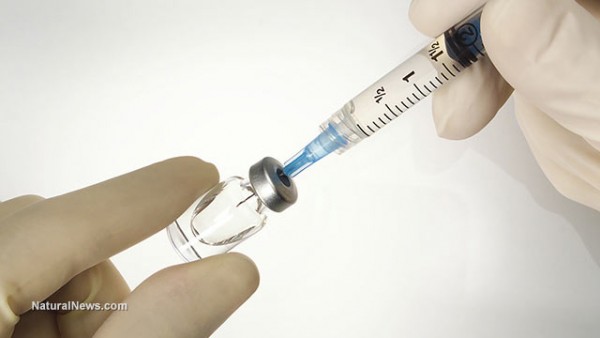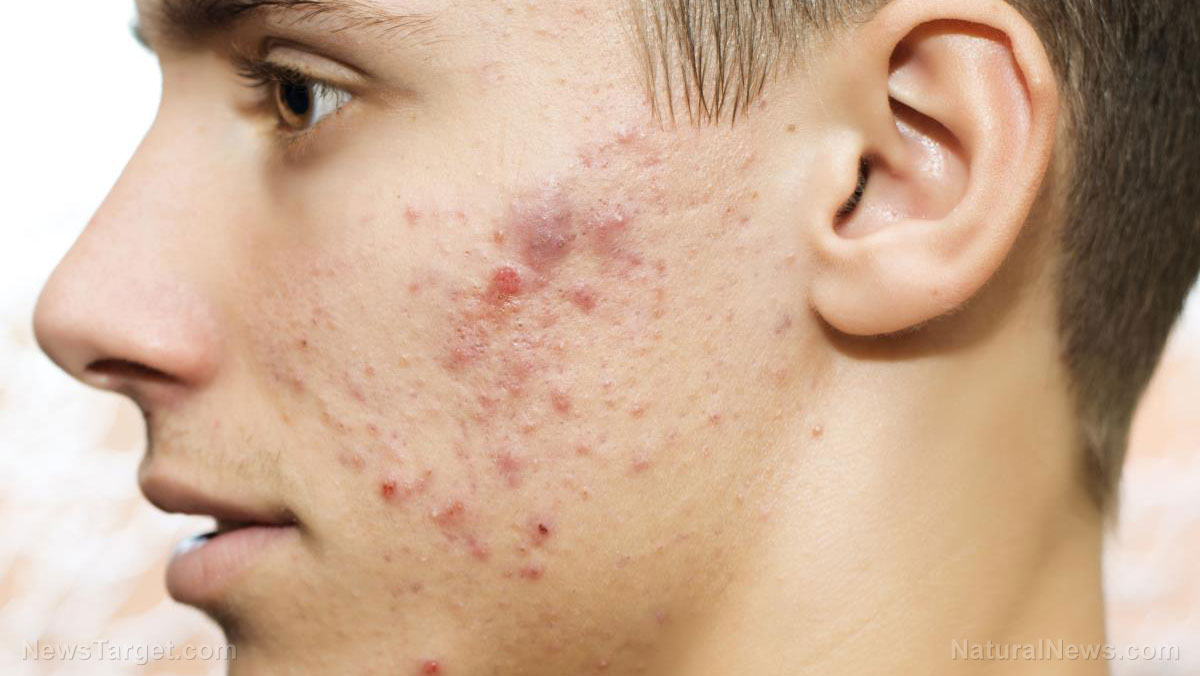Pro-vaccine medical journal admits there is conclusive scientific evidence that vaccines can and do kill some children
01/03/2019 / By Russel Davis

Recent and previous studies show a clear causal relationship between vaccines and adverse health effects, according to an analysis published in the journal Vaccines. Multiple large-scale, extensive research have been analyzed to evaluate the link between vaccination and mortality.
Studies show link between vaccine, disease-related deaths
Researchers have noted that vaccines trigger anaphylaxis. A 10-year analysis of claims to the U.S. National Vaccine Injury Compensation Program cited five cases of deaths associated with vaccine-induced anaphylaxis. A 2003 study also revealed that about five cases of vaccine-related anaphylaxis were recorded among children and adolescents. The CDC’s Advisory Committee on Immunization Practices suggests routine screening be conducted prior to giving immunization shots. However, while anaphylaxis occurs after vaccination, the panel also recommended that clinicians be prepared to provide necessary health care at the event of vaccine-induced anaphylaxis.
Study data also stressed the hazards of giving live vaccine viruses to people with severely compromised immune systems. Researchers cited two published case reports of immuno-compromised children receiving live virus vaccines, which caused subsequent death in both patients. In one of the cases, a 4-year-old child was given live varicella vaccine during a two-week break from chemotherapy. The patient had been in complete remission from acute lymphomatic leukemia for five months. Researchers also identified at least six reported cases of death in immuno-compromized patients following vaccination against measles.
Mother Nature's micronutrient secret: Organic Broccoli Sprout Capsules now available, delivering 280mg of high-density nutrition, including the extraordinary "sulforaphane" and "glucosinolate" nutrients found only in cruciferous healing foods. Every lot laboratory tested. See availability here.
Research data also highlighted a number of intussusception cases after receiving a rotavirus vaccine. An analysis of Vaccine Adverse Event Reporting System (VAERS) reports indicated two deaths associated with rotavirus vaccine between 2006 to 2012. On the other hand, a review of electronic health records showed that the 2009 H1N1 inactivated influenza vaccine might be a contributing factor in the death of two patients with confirmed Guillain-Barre syndrome.
More cases of death from serious illnesses linked to vaccines
The Institute of Medicine has also established a link between vaccines and syncope-related death in women. In an analysis, 15 percent of young women who received human papillomavirus vaccine reported presyncope or syncope after first dose. A VAERS case report indicated a death resulting from head trauma secondary to vaccine-induced syncope. According to the report, syncope is an acute medical condition that typically occurs within 15 minutes following vaccination. The Advisory Committee on Immunization Practices recommends that clinicians provide an observation period of 15 minutes after administering the vaccine, especially in adolescent patients. Data also showed that administering yellow fever vaccine may result in subsequent viscerotropic disease. The illness, which has similar symptoms as those of yellow fever’s, may trigger more serious complications including multi-organ failure and death. According to the study, 60 cases worldwide was reported to the CDC, 63 percent of which lead to death.
Cases of death associated with smallpox vaccine was also discussed in the analysis. Researchers noted one case each for patients who took the first dose, and those who had another dose. Vaccine-related reactions leading to death included eczema vaccinatum, progressive vaccinia and postvaccinal encephalitis as well as myocarditis and dilated cardiomyopathy. Data also showed that administering smallpox vaccine to pregnant women caused stillbirth or infant death. “Patients should be carefully screened for precautions and contraindications prior to receipt of smallpox vaccine,” the researchers cautioned.
“Vaccines are rigorously tested and monitored and are among the safest medical products in use. Millions of vaccinations are administered to children and adults in the United States each year. Serious adverse reactions are uncommon and deaths caused by vaccines are very rare. Healthcare providers can take specific actions to help prevent adverse reactions, including proper screening for contraindications and precautions and observing a 15-minute waiting period after vaccinating to prevent fall-related injuries from syncope,” the researchers concluded.
Sources include:
Tagged Under: Child vaccines, Forced Vaccinations, Medical Tyranny, medical violence, vaccines, vaccines toxic



















